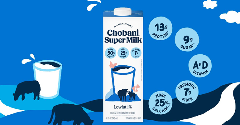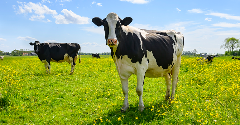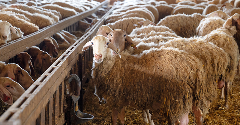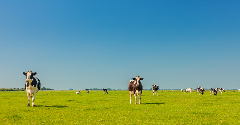News
Cargill invests €12m in Belgian chocolate production
22 Jun 2018With what the company sees as the rapid rise in consumer demand for premium, high quality Belgian chocolate, Cargill has invested in a new liquid chocolate production line in its Mouscron production facility in Belgium.

With what the company sees as the rapid rise in consumer demand for premium, high quality Belgian chocolate, Cargill has invested in a new liquid chocolate production line in its Mouscron production facility in Belgium. This investment increases the company’s capacity to produce milk and dark chocolate and creates up to 10 new local jobs.
Cargill’s cocoa and chocolate business will open the production line in the last quarter of 2018. With an investment of €12 million ($14 million), the company says it will be able to further enhance and expand its chocolate capabilities. The investment is said to be a response to growing customer demand for high quality chocolates tailor-made to individual customer specifications, demonstrating what Cargill says is its continued commitment to providing its customers with a secure and broad supply of bespoke cocoa and chocolate products.The new production line will, according to Cargill, help food manufacturers innovate in a market characterized by rapidly changing consumer preferences and expectations. Inge Demeyere, managing director for Cargill’s chocolates and compound activities in Europe, said: “Indulgence is a key driver of the demand for premium chocolate. With the new production line, we will be able to better meet Belgium’s chocolate needs – and offer more quality Belgian chocolate to customers in other global markets who want to benefit from the country’s world-class reputation. At Cargill, we are fully committed to our long-term growth in the Belgian chocolate market.”Cargill currently employs approximately 150 people in production and related services in Mouscron. The Mouscron facility processes dark and milk chocolate in liquid and solid form for manufacturers active in confectionery, biscuits, bakery, ice-cream and artisanal applications. The company has another chocolate site in Belgium, Antwerp, producing liquid and solid chocolate.Related news

Danone removes NutriScore from products
20 Sep 2024
Following an algorithm update that gives some of its sweetened drinks a worse score, Danone has removed the front-of-pack label, NutriScore, from all of its products – putting profit before public health, say campaigners.
Read more
Chobani develops shelf-stable, prebiotic-enriched Super Milk
12 Sep 2024
Chobani has launched a prebiotic-enriched, shelf-stable, high-protein dairy milk to support people in disaster zones who need a nutritious drink that does not require refrigeration.
Read more
Tesco trials methane mitigation supplement for dairy cattle
5 Sep 2024
Tesco is trialing a methane-reducing feed supplement for one of its key UK dairy farms, sustainable UK milk producer Grosvenor Farms.
Read more
Sheep and goat plague: A new threat to Greece’s feta production
27 Aug 2024
A recent goat and sheep plague outbreak threatens feta production in Greece. The flagship product accounts for roughly 10% of the country’s food exports, but Greek authorities say there is no cause for concern.
Read more
Nestlé develops a new fat reduction method for dairy ingredients
26 Aug 2024
A Brazil-based Nestlé research and development team has developed a way to reduce the fat in milk powder by as much as 60%, without impacting the key characteristics that consumers enjoy.
Read more
Dutch court rules against plant-based butter brand ‘Roombeter’: Only dairy products allowed to use the word ‘cream’
26 Jul 2024
A Dutch court has ruled against Upfield’s plant-based butter, Roombeter, stating that its use of the word ‘room’ (cream) in the product name violates European regulations that protect dairy-related terms allowed for dairy products only.
Read more
How will Denmark’s 2030 carbon tax impact farming?
12 Jul 2024
Denmark has announced plans to implement Europe’s first carbon tax on agriculture from 2030, targetting the farming sector’s CO2 emissions. How will it be implemented and how have farmers reacted?
Read more
Sweden updates front-of-pack Keyhole labelling rules
11 Jul 2024
The Swedish Food Agency has announced updates to the voluntary Keyhole logo, used in four Nordic countries, following recommendations to improve nutrition labelling.
Read more
Consumers dislike faba beans’ sensory profile
3 Jun 2024
Consumers display low acceptance of faba beans, with sensory properties such as bitterness a core concern, a study suggests. However, for product varieties such as cocoa-free chocolate, this attribute could prove to be a benefit.
Read more
Food scientists uncover new way to preserve nutrient and flavour quality
29 May 2024
Researchers have developed a method that guarantees food safety for low-moisture products, such as dried milk, while maximising quality by retaining vitamins, minerals, and flavours, they say.
Read more